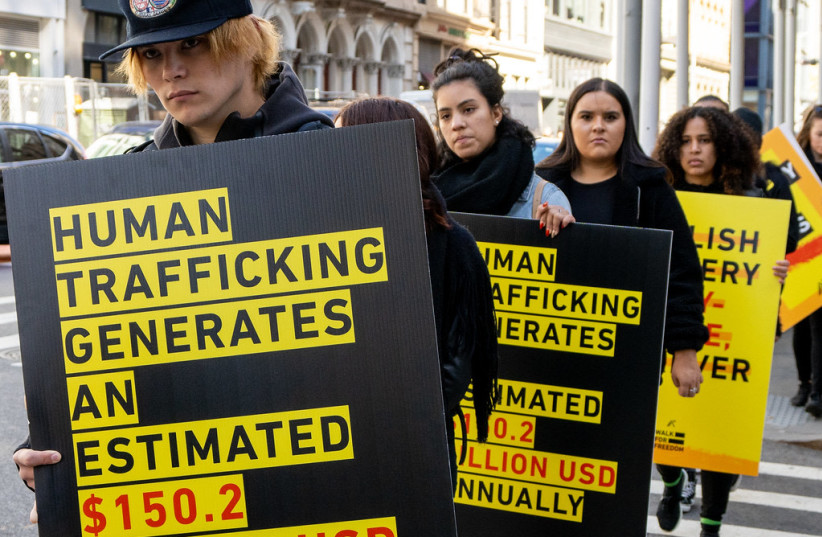In the last five years, Israel has identified 325 victims of human trafficking, according to the country's first activity report published by the Justice Ministry's Governmental Unit for Coordinating the Fight Against Human Trafficking.
The report detailed the data collected about human trafficking in Israel and the steps the country is taking to combat the phenomenon.
According to the report, 71% of the 325 human trafficking victims were women, and one percent were minors. It also revealed that 40% of the people were trafficked for the sake of sexual exploitation, 44% were held under the conditions of slavery and 16% were trafficked for other reasons.
Israel Police conducted 789 interrogations of suspects of human trafficking of which only 155 were indicted and 99 were convicted.
The report also detailed specific cases of human trafficking that were caught and dealt with.

What were some of the human trafficking cases?
In one case, a trafficking ring was caught bringing women in from abroad for the sake of prostitution. The ring coached the women on how to get past border control, put them up and drove them to jobs. The perpetrators were arrested and ultimately convicted of trafficking women for prostitution and causing people to leave the country for prostitution.
In another case, a family in the south had six minors aged 6-15 working in the family bakery for varying periods of time. The minors were not given breaks or vacations and were often forced to work in the middle of the night. They were only paid NIS 15-20 a day for this work. The employers often physically abused the kids when they did not reach the goals set for them and caused them severe injuries. The perpetrators were caught after one of the kids showed up in the hospital with three amputated fingers after they got caught in a machine that cuts dough. The criminals were convicted of holding minors in slavery conditions.
A third case involved a 16-year-old girl who was forced to marry a man who was violent to her. After they divorced, her family forced her to marry another much older man as his second wife, and he raped and abused her on their wedding night. The next day, she killed him and was sentenced to prison. Following her sentencing, the girl asked to be recognized as a victim of human trafficking but was refused. The case was then taken to the High Court of Justice which ruled to recognize her as a victim of human trafficking.
"The war against human trafficking is at the center of our basic values as a democratic and Jewish state," said Justice Minister Gideon Sa'ar. "This year, the government approved the five-year plan that I submitted to it that includes many necessary and meaningful actions to be taken in cooperation with ministries in the government to prevent trafficking and exploitation and further the rights of victims. I am convinced that implementing the plan will help eradicate the phenomenon and will put Israel back on the highest ranking in the US State Department regarding human trafficking."
